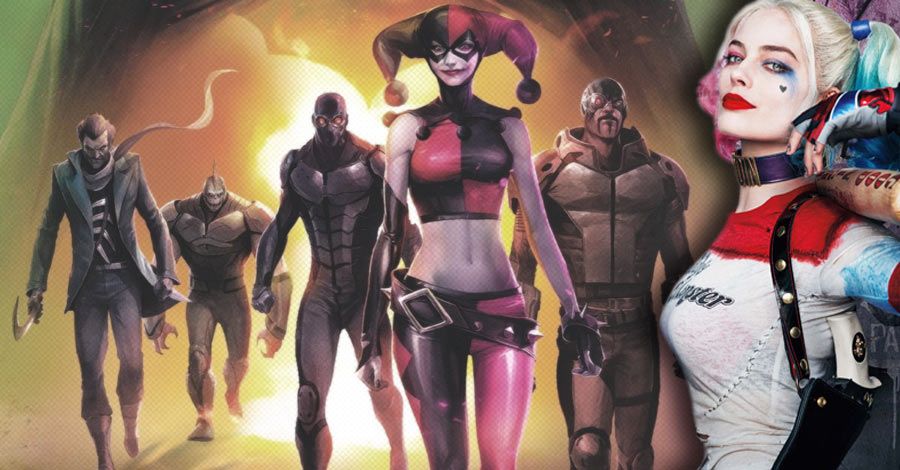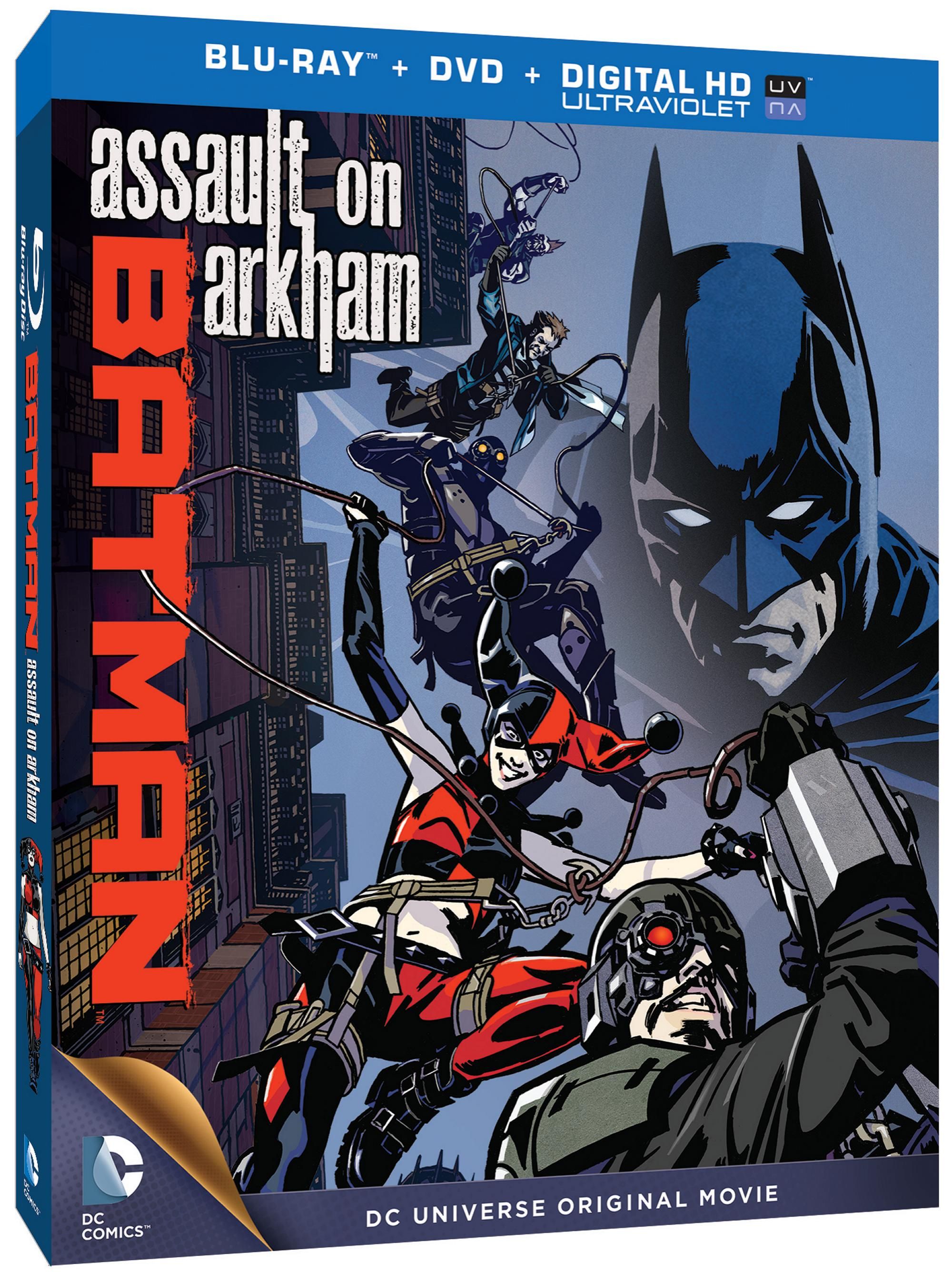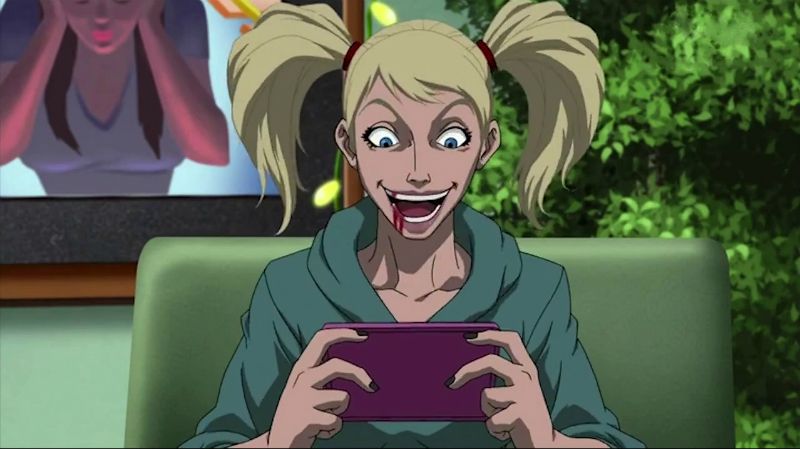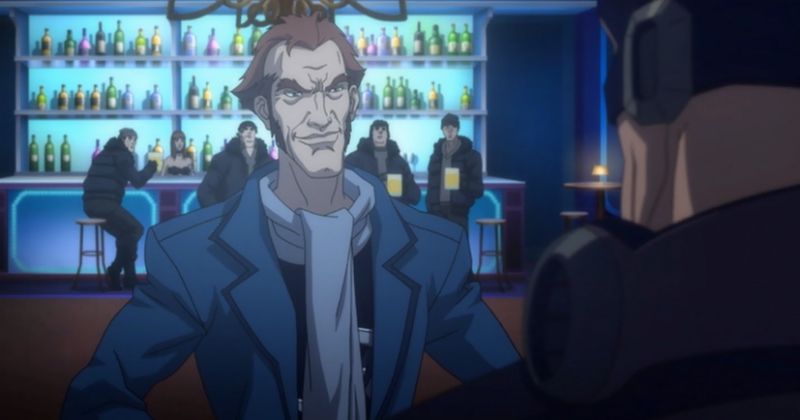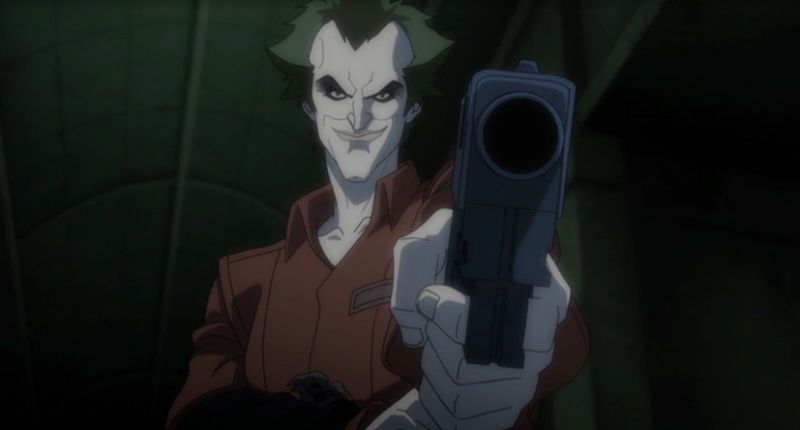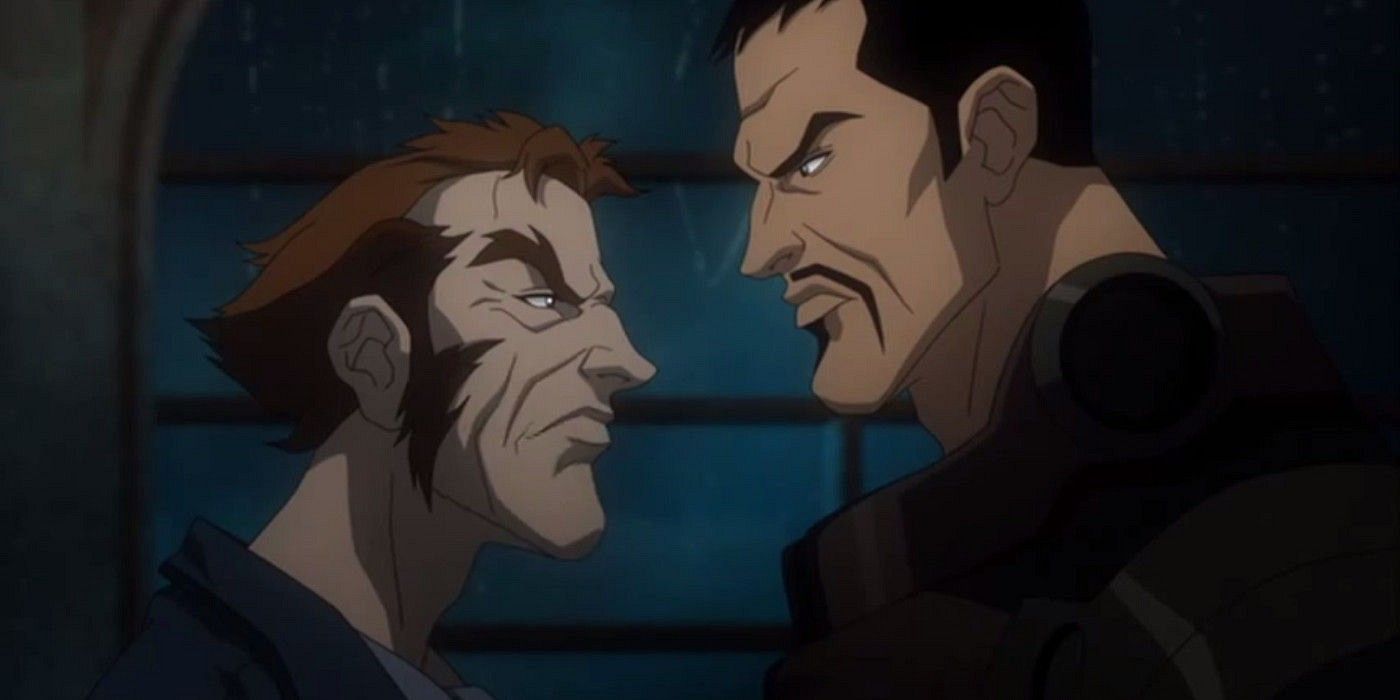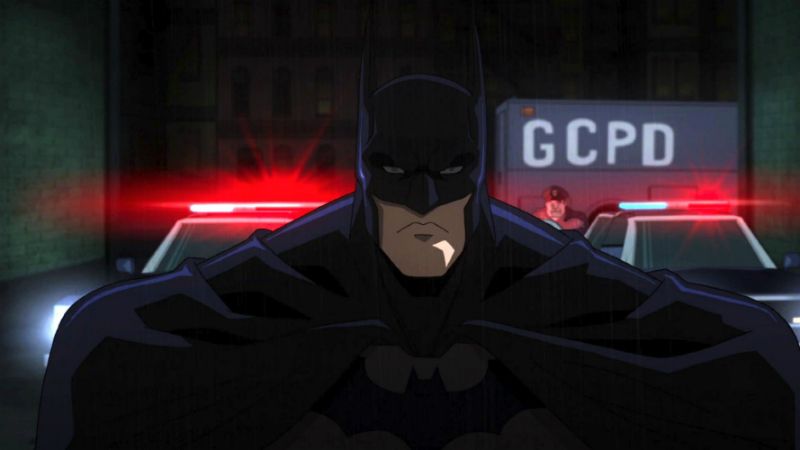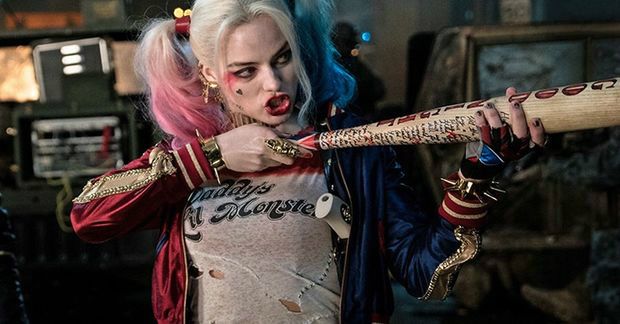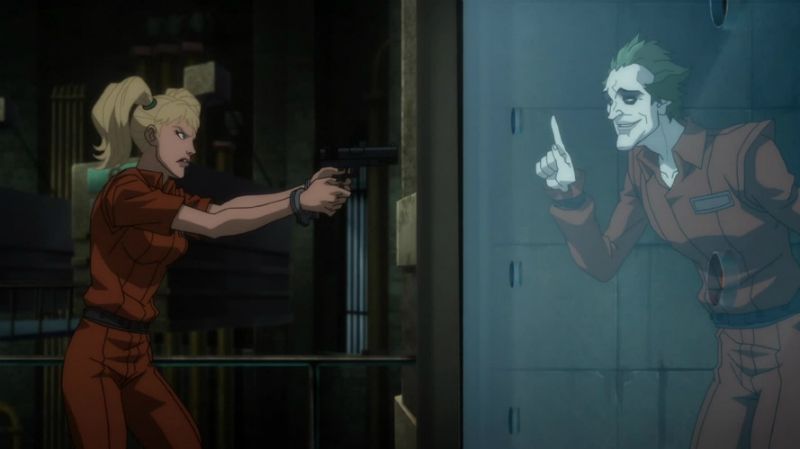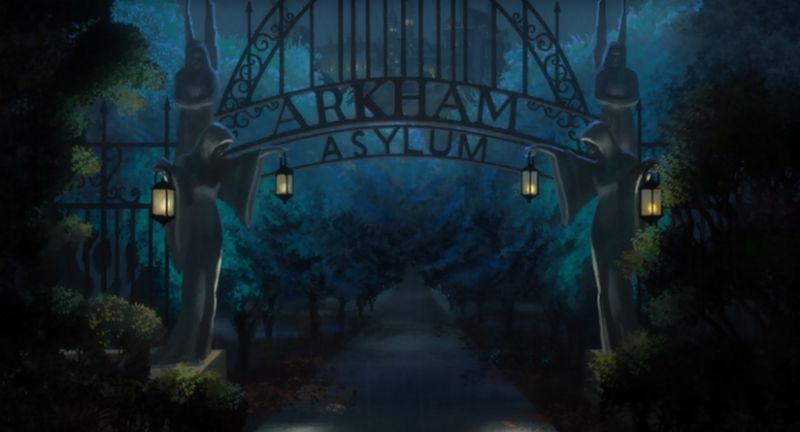SPOILER WARNING: The following contains spoilers for 2016's "Suicide Squad" and 2014's "Batman: Assault on Arkham.
When the first "Suicide Squad" trailer came out, audiences were skeptical. Fans of Task Force X were unsure about Jared Leto's Joker and Margot Robbie's Harley Quinn, who looked like blitzed-out gang members perhaps more than they resembled their comic book counterparts. Subsequent trailers, however, raised expectations that DC Films' "Suicide Squad" just might be exactly the film the franchise needed, at once both buddy movie and comic book blockbuster.
Despite record-setting box office in its first weekend (and a steep dive in its second), fans and critics alike are giving the movie mixed reviews. Although some are positive, many denote the theatrical cut's frequent plot holes and altogether unfocused nature. Sure, the soundtrack is expressive, and the color timing is great, but is that really enough to carry a movie?
10 10. Head Explosions in the Sky
No Suicide Squad treatment would be complete without a head explosion, particularly because the squad members are literally propelled to action by the explosives embedded in their necks. As a result, fans were sure to be watching for that eye-popping moment in "Suicide Squad," which was delivered at the expense of the unfortunate Slipknot.
Of course, anyone familiar with Task Force X's expendability would have seen this coming, as Slipknot mysteriously lacks the origin-story-by-way-of-flashbacks treatment that every other member of the squad receives. It immediately flags him as an extraneous member of the team, making his death only a matter of time. Between his appearance, his one-line introduction, and his untimely end, Slipknot is lucky if he was onscreen for a full fifteen minutes.
If you've seen the movie, you know that it was a shockingly anticlimactic head explosion. Here are just a few ways that "Batman: Assault on Arkham" did the same thing much, much better.
First, they didn't make it blatantly obvious who would die first. "Assault on Arkham" weaves the character introductions into the beginning of the film just like "Suicide Squad," but allows you to glean each squad members skills from the short montage, rather than lengthy, scripted scenes. KGBeast, who goes the unfortunate way of Slipknot, gets his full due in the opening credits -- even going so far as to jump out of a plane on a motorcycle.
And, unlike Slipknot, who for some reason allows a perfect stranger (Boomerang) to convince him to risk his neck, it is KGBeast's hubris that ultimately kills him. "Run away, get yourself captured, hell-- give me a right answer too closely, and I'll blow your head clean off," Amanda Waller tells them, when the team is finally assembled.
"You lie," challenges KGBeast. "You would not take all of this trouble just to kill us." He crosses the line, and proves that Waller means what she says. His head explodes.
The whole team gets to see it happen, and the whole team knows that she's serious. It's a prison yard assertion of her dominance, and it works.
But what really makes the head explosion trope in "Assault on Arkham" better than "Suicide Squad," is that it happens more than once. In fact, the next head to explode is so compelling that it's not worth spoiling here. Just trust us: it's worth seeing for yourself.
9 9. The Funny Parts
Despite capitalizing on the humor in the theatrical trailers, audiences agree: "Suicide Squad" wasn't actually all that funny. Sure, Boomerang is apparently a Brony and carries around a plush pink unicorn, but that's not exactly funny -- which means that most of the humor in "Suicide Squad" is summed up by recounting the time that Harley Quinn undresses in front of an army of men, or when Deadshot antagonizes El Diablo. In fact, jokes shown in trailers seem to have been cut from the theatrical release, if Deadshot's shot of whiskey is anything to go by.
Given the main plot concept -- that a team of psychopaths with very different backgrounds, powers and values have been teamed up to work together on an impossible mission -- it ought to have been easy to draw the humor to the foreground.
And "Assault on Arkham" would have been a great starting point for the live-action take. The movie makes it clear from the beginning that they are all used to working on their own, particularly by creating unusual relationship dynamics like the machismo battles between Deadshot and Captain Boomerang. King Shark's fear of heights his disarmingly funny, given his enormity and apparent fearlessness -- and of course there is Harley Quinn, who actually seems to enjoy falling on her head.
Humor like that emerges when you allow characters to have their own particular backgrounds, qualities and development, rather than merely existing as one-eighth of a larger team. "Suicide Squad" could have used a bit more of that.
8 8. A Better Boomerang
One of the greatest pitfalls of "Suicide Squad," which will re-emerge as a common theme throughout this list, is a persisting lack of character development. With the exception of Deadshot, Rick Flaggand Harley Quinn, a lot of the other Squad members get short-shrifted. None, perhaps, more than Captain Boomerang.
In "Suicide Squad," Boomerang is given almost nothing to do for the entire movie. In fact, if not for the can of Foster's permanently in hand, his lack of lines would have made it hard to tell that he's Australian. Except for a few short sequences with his jacket -- wherein we discover that he's a Brony, and has padded his clothing with cash -- Boomerang has very little to do, except to throw a boomerang drone.
It's a real shame, because Boomerang may have the most to prove of all of the members of the team. His entire skill set is wrapped up in an outdated Australian hunting method that seems out of place next to Deadshot's arsenal. It should make for comedy and character development gold, but, somehow, it doesn't.
"Assault on Arkham" wisely capitalized on it, making it clear that Captain Boomerang is capable of throwing just about anything, and eager to prove that boomerangs are cool, too. It fosters realistic tension between Boomerang and the Deadshot, and one damn fine game of darts.
7 7. Putting the Joker Onscreen
If the competition were just down to which film managed to put the Joker on screen more, "Assault on Arkham" would win by default. Despite Jared Leto's frustrations that much of his screen time was relegated to the cutting room floor, "Suicide Squad" director David Ayer has stood by his theatrical cut of the film, despite there being very little Joker in it. In fact, Leto's Joker seems to exist only to clarify Harley Quinn's history, and to alternate between rescuing her and leaving her to be captured.
To make one of DC's most compelling villains into little more than a besotted boyfriend is at best confusing, and at worst potentially repercussive. HQ/Joker swag is >already in production with the hashtag #relationshipgoals, which seems to suggest that the Joker and Harley Quinn have something really special. That's true, if you can count physically and verbally abusive as "special," but none of that history made it into Ayer's theatrical cut. Instead, the Joker is mostly visually psychotic, and primarily motivated by all things Harley Quinn. In short, the film both sanitizes and limits him.
By contrast, "Assault on Arkham" used the Joker to a much fuller degree, not only as an inmate of Arkham and catalyst for Harley Quinn -- who clearly denotes the ways he has wronged her -- but also as one of the main antagonists of the film. The Joker's escape means not only confusion for Harley, who becomes torn between the Suicide Squad and her manipulative ex -- a plot that feels natural in lieu of their comic book history and also adds some complexity to her character -- but also that the squad's mission becomes more complicated, as they try to maneuver around the clown prince. It even creates an unexpectedly delightful competition between the Joker and Deadshot, who has (almost accidentally) become Harley's new beau.
This is one of the film's best triumphs over "Suicide Squad:" that you don't finish the film wanting to date the Joker.
6 6. The Plot Twists
You know in "Suicide Squad" when the team gets to the top of the skyscraper and they find out they're rescuing Amanda Waller instead of some other unnamed "person of interest"? That's basically as twisty as the plot gets. Harley Quinn doesn't die in the helicopter crash, and the Enchantress isn't controllable merely by the possession of her heart. This is all supposed to be very thrilling stuff.
But what if a movie made you think that someone was a teammate, but it turned out that they were actually the mortal enemy, laying low because they need more information? What if you don't realize they're not one of your squad members until their head is supposed to explode... and then it doesn't? What if you didn't see that coming at all and got to experience the reveal the way it was intended -- so that you have to think backward to when the exchange possibly could have happened? That seems pretty twisty.
And what's more -- it's just one of the ways the plot twists in "Assault on Arkham." To add to the mix, there is a mission-within-a-mission, which isn't exposed until it puts the entire squad at risk. It makes for pure Suicide Squad subterfuge at its best. What's not to love about that?
5 5. Using the Bat
In the weeks leading up to the "Suicide Squad" release, fans were bombarded with images of Batman in the film. He was lauded as an intensely terrifying Batman, and director David Ayer claimed that it related to a change in point of view: "For the first time, we're seeing Batman from the point of view of the criminals and he's freaking scary," he told Collider.
But is Ayer's Batman scary, though? Not in the version of the film that made it to theaters. This is due in part to the fact that he's barely even in the film, only appearing to save Harley Quinn from drowning and to muscle Waller into giving him classified information on future members of the Justice League. His presence in "Suicide Squad" is ultimately little more than an extended cameo, and hardly has time to contribute to a sense of perspective change.
It's regrettable, because fans of the Squad are usually fans of the universe, and Batman is a big part of that. Most of the villains who make up the Squad are rogues of one Justice League member or another, and are bound to cross paths with Gotham's favorite vigilante now and again. In "Assault on Arkham," for instance, Batman's goal aligns with the goal of the Squad, so he infiltrates their ranks. It's a tactical move that makes perfect sense for one of the most tactical minds in the DC Universe. Which begs the question: why wasn't Batman invested in the battle against the Enchantress? Isn't he interested in protecting the world from cataclysmic events too?
4 4. Avoiding Dangerous Plot Holes
Unfortunately, the fact that Batman wasn't interested in the global threat building in Midway City is only a minor plot hole compared to some of the other "Suicide Squad" kerfuffles. In the interest of brevity, here are just a few.
First, it's pretty lucky that the Enchantress decided to stay in Midway City, when she can literally teleport anywhere instantly. There seems to be no actual explanation for this in the film, unless you infer that part of the Enchantress is hoping that Rick Flagg will join her evil mission. Either way, it sure would have been harder to get the Suicide Squad to the other side of the world, so she might want to consider that for next time.
Second, why wouldn't they send a team of ultra-powerful metahumans, to fight an ultra powerful metahuman? Task Force X was not designed for full-frontal attacks against god-like powers, and squad members like Harley and Boomerang should have died immediately. Harley literally took a baseball bat to a magic fight. With the notable exception of El Diablo, there is absolutely no reason to think that this team will be better off than special ops. Where's Killer Frost when you need her?
Finally, Task Force X is supposed to be an ultra classified operations team, and that seems to be the last thing on Amanda Waller's mind when she sends them to battle. Deadshot and his colleagues appear to walk up to the source of the energy and go inside, basically, despite the fact that there would be enormous nationwide attention on such an event. But even if that weren't the case, Deadshot appears to negotiate some sort of recognition for himself by the end of the film, so that his daughter will know that he's not a bad guy. Maybe Waller was softened by her experience with the Enchantress, because she's clearly lost track of her principles by the end of the film. In fact, she didn't throw them under the bus once.
3 3. Taking Care of Harley Quinn
That "Assault on Arkham" manages to show a sex scene between Deadshot and Harley Quinn and still be a better representation of her only denotes how frustrating " Suicide Squad" was from a female perspective. It isn't just the cheeky-bottom panties -- which show more of the backside than normal panties on a good day, and then just happen to be in almost every Harley scene (shot from behind and slightly below her, of course) -- because there are much more problematic things to worry about.
At the top of the list is her relationship with the Joker. Although Ayer claimed to go to the New 52 for costume ideas, he clearly wasn't paying attention to what the comics were saying about Harley as a character; she has been the beaten woman, and she's also proven that it is not all that she is. There's no need to spend an entire two-hour movie establishing that her relationship is unhealthy, even if you are planning to unwind it in future films -- and we don't yet know that for sure.
In the end, viewers who watch "Suicide Squad" with no prior knowledge of Harley and the Joker may find it difficult to determine whether or not the relationship is really all that unhealthy. Instead, the movie seems to be about a couple of psychopathic soul mates who might be murderers, but who are really just looking for their version of "normal." Even Deadshot seems to respect Harley for standing by her man.
And, because the film is rated PG-13, a bunch of teenage girls are going to get to see that.
Ayers would have been better off if he'd borrowed more from "Assault on Arkham." Sure, Harley goes to bed with Deadshot, but she also berates the Joker for leaving her for dead -- something that never happens in "Suicide Squad" even though she almost drowns. Sure, Harley is torn between her past life with the Joker and her current life with the Squad, and is tempted to return to the cycle of abuse that she knows so well. But because she doesn't, she actually experiences character growth by the end of the film, rather than perpetuating the violence.
When you consider the ultimate trajectory of Harley Quinn within "Suicide Squad" against "Assault on Arkham," there's a very clear winner. Add to that the drastically improved costuming in "Assault on Arkham" -- which owes much more to Paul Dini and Bruce Timm than to the New 52 -- and to her intensely joyful psychosis, ever-present in the narrative, and you have the type of Harley Quinn that fans of Batman: The Animated Series have been waiting for.
There's even a scene where "B-man" catches Harley breaking into a doll shop. What could be more "Animated Series" than that?
2 2. Believable Team Dynamics
One of the most decisively distracting elements of the recent "Suicide Squad" is the way that the team interacts. At the beginning of the movie they are (as is only right) reluctant allies on a mission they can't refuse. That's very true to Task Force X's long history, and it has always formed the basis for a variety of entertaining conflicts and unlikely friendships.
Because everyone is so different, there are usually outliers on both ends of that spectrum. In "Assault on Arkham," for instance, Captain Boomerang and Deadshot hate each other because both are headstrong, and their skills are both based on accuracy. Their ongoing competition is sometimes as simple as playing darts, but endangers their mission when they allow it to enter into their work. This kind of sub-plot establishes both Deadshot and Boomerang as slightly more well-rounded characters, and provides much-needed comic relief.
Similarly, the unlikely romance between King Shark and Killer Frost in "Assault on Arkham" creates a context for unexpected chivalry and empathy between two of the most standoffish squad members in the film. Again, this defines their values and personalities more clearly as individuals, which ultimately makes the team dynamic feel more nuanced.
In "Suicide Squad," we get very little of this, unfortunately. There's a very limited feeling of reluctance between team members at the birth of Task Force X, which fades out quickly into a team-wide resignation that doesn't even feel resentful. Everyone loves Harley Quinn and they practice civility among themselves, and apparently that's because they are all criminals and that's that. It offers almost no context for the sudden "family" metaphors that collide with the film at the very end of the movie, and which apparently struck Boomerang so deeply that he returned to the group for their final (probably suicidal) mission.
What "Suicide Squad" fails to do, and what "Assault on Arkham" succeeds at, is recognizing that the team dynamic does not have to be familial. It is okay for criminals to learn a grudging respect for each other, and to be bonded merely by being forced to work together. They don't have to like each other or love each other -- hell, they can even hate each other -- as long as they can work together. In fact, they should probably do a bit of both, because that's what humans do. In the end it will be the sheer luck of surviving each mission that makes Task Force X become a team, because everything in the world is against them -- except, mostly, each other.
1 1. Appropriate Assignments
In the end, what really distinguishes the superior "Assault on Arkham" from the inferior "Suicide Squad" is the main premise -- the mission so important that Waller can send in criminals.
Historically, the squad's missions have always been innately tied into their identity as a team, because they are motivated by fear of death and are facing impossible odds. Waller, in "Assault on Arkham," puts it well: "Task Force X is an off-the-books government strike team, made up of convicts with no hope for release, serving as expendable agents for impossible missions." They are valuable to the government because they are expendable, and because -- as a team, at least -- they don't exist.
If you take that as the mission statement of the Suicide Squad, it makes the problems with the recent movie glaringly obvious; Task Force X was created for subterfuge, not for the front lines. Harley Quinn's hand-to-hand proficiency might be effective in close quarters, but is not likely to succeed against two ancient, magical beings. Not to mention that battling the Enchantress is clearly a morally unambiguous task, which makes it an easy task for, say, Superman.
In this case, "Assualt on Arkham" again succeeds where "Suicide Squad" fails, and it does so handily; the team is assembled to break into Arkham Asylum, the maximum security prison to beat all maximum security prisons.
To complete their task, the team is forced to disguise themselves and proceed with full-knowledge that Waller will disown them if they are captured. It creates a scenario with much higher stakes, and allows each individual team member to utilize their unique skills. (Killer Frost, for instance, infiltrates the morgue by slowing her heart rate and lowering her body temperature. King Shark, of course, comes in through the pipes.)
If "Suicide Squad" had taken a similar tactic, the film might have been more successful. It certainly would have closed some of the more prevalent plot holes, and allowed characters like Harley Quinn and Captain Boomerang to shine in closer quarters. Similarly, Arkham Asylum could have provided the perfect, nostalgic background for fans of Gotham's Dark Night. In fact, while"Assault on Arkham" might not have been fluorescent enough to make it into "Suicide Squad," a live-action version of the animated movie would still have been one hell of a heist film.
"Batman: Assault on Arkham" is available now on Blu-ray and digital; "Suicide Squad" is now playing in theaters.

